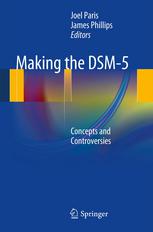

Most ebook files are in PDF format, so you can easily read them using various software such as Foxit Reader or directly on the Google Chrome browser.
Some ebook files are released by publishers in other formats such as .awz, .mobi, .epub, .fb2, etc. You may need to install specific software to read these formats on mobile/PC, such as Calibre.
Please read the tutorial at this link: https://ebookbell.com/faq
We offer FREE conversion to the popular formats you request; however, this may take some time. Therefore, right after payment, please email us, and we will try to provide the service as quickly as possible.
For some exceptional file formats or broken links (if any), please refrain from opening any disputes. Instead, email us first, and we will try to assist within a maximum of 6 hours.
EbookBell Team

4.4
52 reviewsIn 2013, the American Psychiatric Association published the 5th edition of its Diagnostic and Statistical Manual of Mental Disorders (DSM-5). Often referred to as the “bible” of psychiatry, the manual only classifies mental disorders and does not explain them or guide their treatment. While science should be the basis of any diagnostic system, to date, there is no knowledge on whether most conditions listed in the manual are true diseases. Moreover, in DSM-5 the overall definition of mental disorder is weak, failing to distinguish psychopathology from normality. In spite of all the progress that has been made in neuroscience over the last few decades, the psychiatric community is no closer to understanding the etiology and pathogenesis of mental disorders than it was fifty years ago.
In Making the DSM-5, prominent experts delve into the debate about psychiatric nosology and examine the conceptual and pragmatic issues underlying the new manual. While retracing the historic controversy over DSM, considering the political context and economic impact of the manual, and focusing on what was revised or left unchanged in the new edition, this timely volume addresses the main concerns of the future of psychiatry and questions whether the DSM legacy can truly improve the specialty and advance its goals.